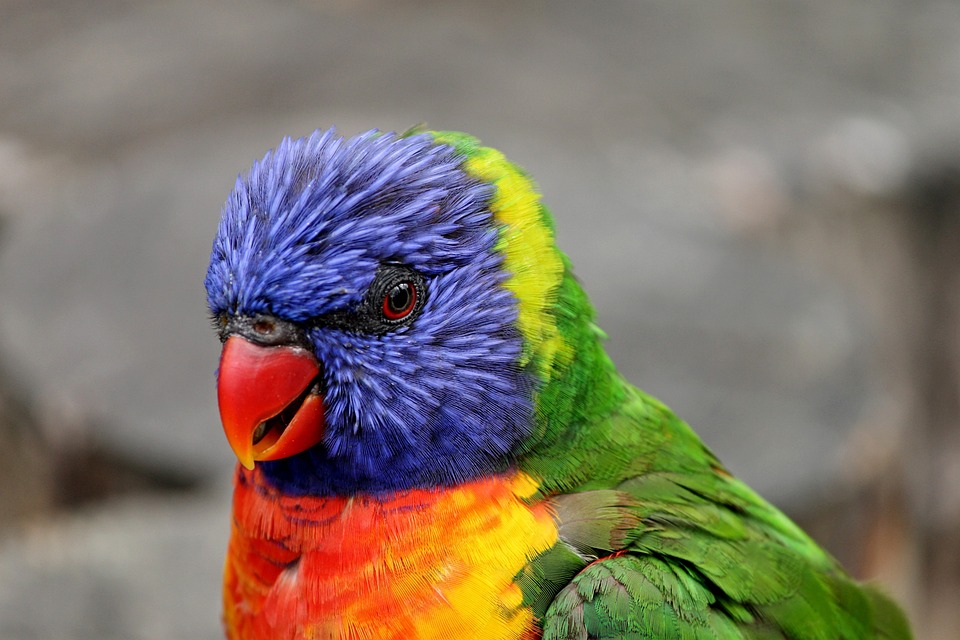Parrots are beautiful, intelligent creatures that can bring joy and companionship to our lives. However, like any other living creature, they can also exhibit aggressive behavior, particularly during hormonal periods. Understanding the causes of aggression and implementing effective strategies to discourage it is crucial for maintaining a harmonious relationship with your parrot. In this article, we will explore various techniques and tips to help you manage and discourage aggressive behavior in your feathered friend.
Hormonal periods in parrots are natural cycles that occur as a result of their reproductive system. During these periods, parrots may experience increased levels of hormones, which can lead to aggressive behavior. These periods typically occur when the days are longer and mimic the breeding season in the wild.
Several factors can trigger hormonal behavior in parrots. These include changes in daylight, temperature, and diet. It is important to note that not all parrots will exhibit aggressive behavior during hormonal periods, as it varies depending on the species and individual bird.
The duration of hormonal periods in parrots can vary. Some parrots may experience short periods of hormonal behavior, while others may go through longer periods. It is important to be patient and understanding during these times, as it is a natural part of their biological makeup.
Certain parrot species are more prone to hormonal behavior than others. For example, cockatoos, macaws, and Amazon parrots are known to have more intense hormonal periods. It is essential to research and understand the specific hormonal behaviors associated with your parrot’s species to effectively manage and discourage aggression.
Identifying aggressive behavior in parrots is crucial for intervention. Common signs of aggression include biting, lunging, hissing, and feather fluffing. It is important to differentiate hormonal aggression from other types of aggression, such as fear-based aggression or territorial aggression. Understanding the underlying cause of aggression will help in implementing appropriate strategies for discouraging it.
Creating a healthy environment for your parrot is essential in managing aggressive behavior. Providing adequate mental stimulation through toys, puzzles, and foraging activities can help redirect their energy and prevent boredom. Establishing a consistent daily routine can also help your parrot feel secure and reduce stress levels. Ensuring a balanced diet that includes fresh fruits, vegetables, and a variety of seeds is crucial for their overall well-being. Regular exercise and playtime are also important for maintaining their physical and mental health. Lastly, providing a comfortable and secure living space with appropriate perches and hiding spots can help reduce stress and aggression.
Minimizing triggers for aggression is another effective strategy. During hormonal periods, it is advisable to avoid physical contact, as this can stimulate their hormones further. Recognizing and avoiding potential triggers, such as certain toys or objects that may incite aggression, is essential. Limiting access to dark and confined spaces can also prevent nesting behavior. Additionally, reducing exposure to mirrors or reflective surfaces can help minimize territorial behavior. Lastly, sudden changes in the environment, such as rearranging furniture or introducing new pets, should be avoided during hormonal periods.
Positive reinforcement training is a powerful tool in discouraging aggressive behavior. Utilizing positive reinforcement techniques, such as clicker training and offering treats, can help establish desired behaviors. Training your parrot to respond to commands, such as stepping up or stepping down, can also provide them with a sense of structure and boundaries. Rewarding desired behaviors and ignoring or redirecting aggressive behavior can help discourage aggression effectively.
If aggressive behavior persists or becomes unmanageable, it may be necessary to seek professional help. Consulting an avian veterinarian or an avian behaviorist can provide valuable insights and guidance. These professionals can assess your parrot’s behavior, provide behavioral modification techniques, and rule out any underlying health issues that may contribute to aggression. Seeking professional help is especially important if your parrot’s aggression poses a risk to their own safety or the safety of others.
In conclusion, aggressive behavior during hormonal periods can be challenging to manage in parrots. However, by understanding the causes and implementing the right strategies, you can discourage and minimize aggressive behavior. Remember to create a healthy environment, avoid triggers, provide positive reinforcement training, and seek professional help when needed. With patience, consistency, and love, you can help your parrot navigate through hormonal periods peacefully, ensuring a happy and harmonious bond between you and your feathered companion.









